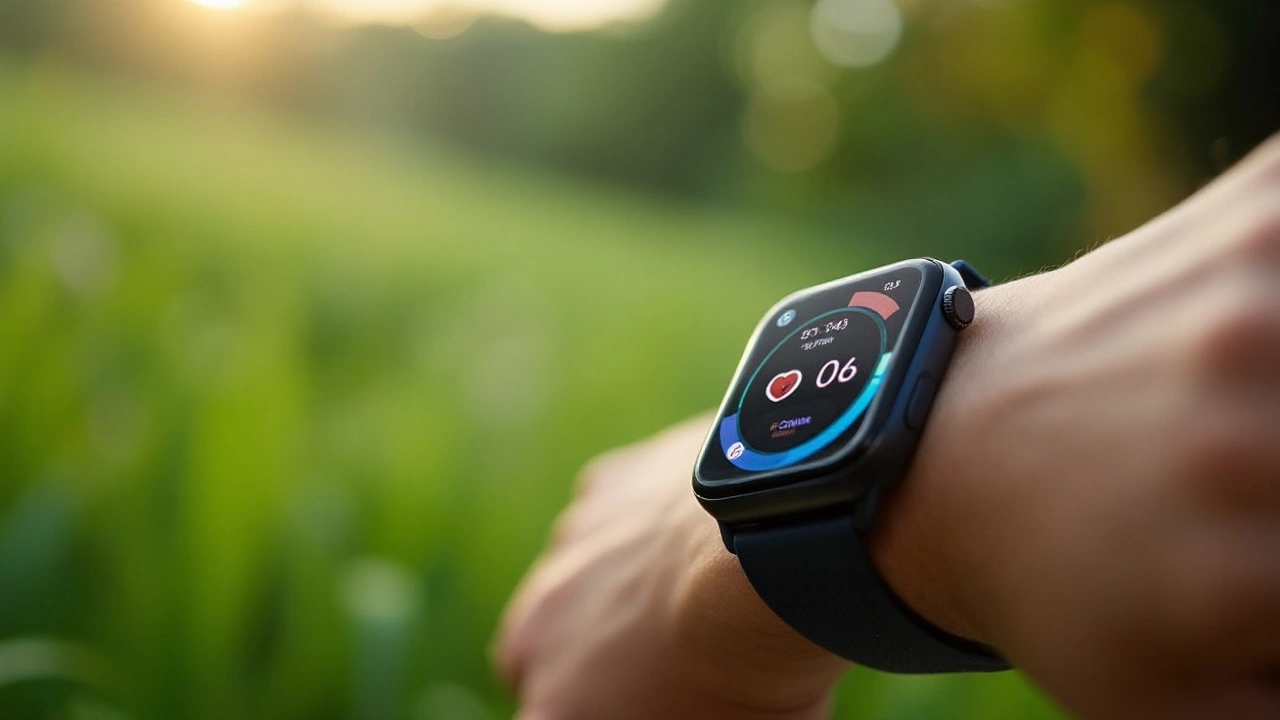Ever wonder why everyone’s glued to their wrist these days? A good fitness tracker does more than count steps – it gives you real‑time feedback, keeps you accountable, and can even spot health issues before they flare up. Whether you’re just starting out or you’ve been logging miles for years, the right device can shave minutes off your runs, help you lift smarter, and make healthy habits feel less like a chore.
First things first: decide what matters most to you. If you love cardio, look for accurate heart‑rate monitoring and GPS – models like the Garmin Forerunner or Apple Watch shine here. Strength trainers should prioritize a solid gyro and easy rep counting; many newer bands now auto‑detect sets and rest periods. Battery life is another biggie. Nobody wants to charge a device every night; a week‑long run‑time is a sweet spot for most users.
Fit the tracker to your lifestyle. If you swim, you’ll need a water‑resistant rating of at least 5 ATM. For night owls, a bright but not blinding display matters – you’ll be checking stats in the dark. Finally, consider ecosystem compatibility; a tracker that syncs seamlessly with your phone’s health app saves you time and avoids double‑entry headaches.
Once you’ve got the gear, set it up right away. Skipping the initial calibration can throw off step counts and calorie estimates. Most apps ask you to input age, weight, and fitness level – be honest, it tailors the algorithms to you. Turn on sleep tracking; many users discover hidden recovery patterns that explain why a certain workout felt “off”.
Use alerts wisely. A gentle vibration for a high heart‑rate zone can prevent overexertion, while a “stand reminder” nudges you to move during long desk sessions. But don’t let every buzz become noise – customize notifications to the metrics you actually care about.
Finally, treat the data as a coach, not a judge. Spot trends over weeks, not day‑to‑day swings. If you see a steady rise in weekly mileage, celebrate; if you notice a dip after a restless night, maybe prioritize recovery. The best part? Many trackers let you set personal goals – whether that’s a 10,000‑step baseline, a calorie‑burn target, or a weekly strength session. Hitting those small milestones builds confidence and keeps motivation high.
Bottom line: a fitness tracker is only as good as the habits you pair with it. Pick a device that aligns with your main activities, sync it properly, and use the insights to tweak your routine. In a few weeks you’ll start seeing clearer patterns, smarter workouts, and maybe even a few pounds melt away – all without feeling like you’re on a strict regimen. Happy tracking!
Fitness trackers promise better health-but for many, they create anxiety, obsession, and disconnection from the body. Here’s why stepping away might be the healthiest move you make.
READFitness trackers count steps and sleep. Fitness watches monitor heart health, GPS, and stress. Learn which one actually fits your goals-not just your budget.
READ
Fitness apps can help you lose weight-but only if you use them to build real habits, not just track numbers. Here’s what actually works, what doesn’t, and how to avoid common pitfalls.
READExplore the real pros and cons of wearing a fitness tracker, learn when to quit, and discover practical alternatives and steps to transition safely.
READDiscover if a fitness tracker is worth your money in 2025. Learn core features, cost‑benefit analysis, top models, and buying tips for beginners and pros alike.
READAre activity trackers just the latest tech fad, or do they offer real benefits for everyday life? This article explores how a fitness tracker could help improve your health and daily habits. Discover practical tips, interesting facts, and whether it's really worth the investment for your lifestyle.
READ
Deciding whether to wear your Fitbit to bed involves balancing comfort and tracking benefits. These devices gather sleep data, providing insights into your sleep patterns. Consider the comfortable design of modern Fitbits and concerns about EMF exposure to make an informed choice. Explore the advantages of sleep tracking and tips to improve your sleep experience with a Fitbit.
READ
Fitbit, a renowned name in the wearable fitness tracker industry, was acquired by Google. This acquisition, completed in 2021, aimed to strengthen Google's position in the health and wellness market by integrating Fitbit's technology with Google's resources and expertise. The purchase has sparked discussions on privacy, innovation, and the future direction of fitness technology. Here, we explore the nuances of this acquisition, its implications for consumers, and what it means for the world of fitness devices.
READ
Discover the top watches designed for health monitoring, offering a variety of features to fit different lifestyles. From tracking vital signs to encouraging daily activity, these devices have transformed the way we approach personal health. Learn which wearable might best suit your needs and understand the factors to consider when making your choice. Modern technology has enabled these watches to provide insights into your health that were previously difficult to access. See how personalized data can empower you towards a healthier lifestyle.
READIn today's world, fitness trackers have become increasingly popular as tools for health and wellness. They offer features like step counting, heart rate monitoring, and even sleep tracking, appealing to a broad audience. This article explores whether these gadgets are worth the investment, examining their advantages and the commitment needed to maximize their benefits. Through careful consideration of personal goals and technological offerings, readers can better determine if a fitness tracker is a valuable addition to their lives.
READ